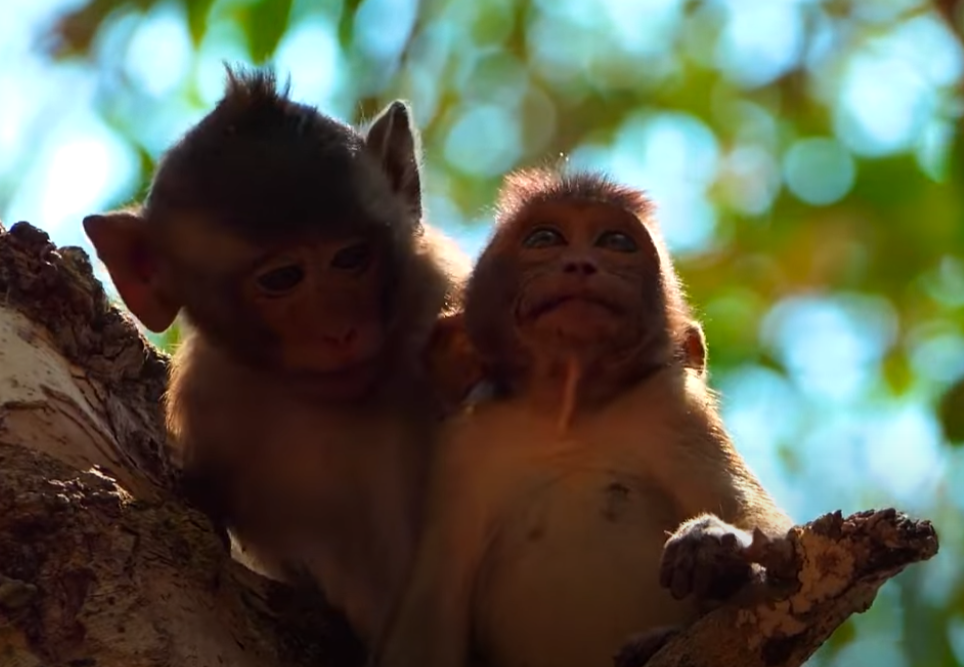

Set deep within the mystical roots of Angkor Wat’s ancient forest, something quiet and heartbreaking unfolded this morning. The air was thick with dew, sunlight filtered softly through the towering trees, and the chatter of monkeys filled the canopy. But not far from the temple stones, one baby monkey sat alone—his tiny shoulders trembling with the weight of confusion.
His name was Koda, no more than a few weeks old, barely strong enough to stand on his own. Koda’s eyes, wide and glassy, searched the forest with a trembling hope—for a glance, a call, anything from his mother. But she had turned her back.
At first, it was subtle. Mama lingered just out of reach, her gaze drifting past Koda as if he were invisible. Then came the harsher moments—when she pushed his tiny body aside while searching for food, when she groomed others but never him, when she climbed trees without waiting for him to catch up.
Koda tried everything. He whimpered softly. He reached out with his little arms. He even clung to her tail once—but she yanked it away and scurried off.
Visitors at Angkor Wat, drawn in by the wonder of the temple and the magic of nature, paused in silence. A tourist named Laura, from Michigan, captured the moment. “I’ve never seen a baby look so lost,” she said. “It broke my heart. He wasn’t just lonely… he was rejected.”
Locals, who know these monkeys well, whispered that the mother had recently lost another baby and might still be grieving. Some mothers, overwhelmed or in distress, may push away the next-born, unable to bear the weight of nurturing again. It doesn’t make it easier to watch.
Koda didn’t understand why Mama wouldn’t hold him. But he never gave up. He followed her gently, step by step. When she rested under a fig tree, he curled up a few feet away—too afraid to come closer, yet too devoted to leave.
And then came the moment that crushed every heart around.
Koda reached up once more, arms shaking, trying to nestle against her side as she lay in the shade. She stood up—swiftly, without warning—and walked away, leaving him sprawled in the dirt, stunned and motionless.
A hush fell over the onlookers. Even the birds seemed to quiet.
But something incredible happened next.
Another monkey—an older female from a neighboring group—noticed. She paused. She looked at Koda, then at his mother’s disappearing figure. Slowly, she approached and sat beside the baby. Not touching. Not forcing. Just… being there.
Koda leaned toward her, unsure. And this time, he wasn’t pushed away.
We don’t know what happened next, or whether that surrogate monkey took Koda under her care. But for a brief moment, in the warmth of the Cambodian morning, Koda wasn’t alone.
And perhaps that’s the message Angkor’s forest gives us time and again: that even in rejection, there can be compassion. Even in heartbreak, someone might reach out—not to fix it all, but to simply sit beside you in your pain.
To every heart who’s ever felt abandoned… this little monkey’s journey reminds us—we are not invisible.